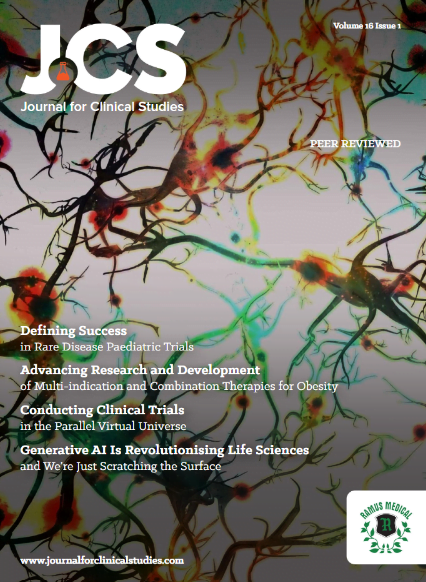The monoclonal antibody HIV drug ibalizumab, designed for patients who’ve developed severe drug resistance, had long-lasting protection in the 24-week extension phase of a phase III trial, researchers reported here.
Nearly 90% of the 27 patients who opted to continue at 24 weeks were still taking the experimental drug at 48 weeks, according to Brinda Emu, MD, of Yale University in New Haven, Connecticut, and colleagues. Viral suppression remained steady from week 24 to week 48, and no new or unexpected safety issues appeared, Emu reported at the at the annual IDWeek conference, sponsored jointly by the Infectious Diseases Society of America (IDSA), the Pediatric Infectious Diseases Society (PIDS), the Society for Healthcare Epidemiology of America(SHEA), and the HIV Medicine Association (HIVMA).
Emu said ibalizumab is the first long-acting, intravenous monoclonal antibody for HIV. It targets the CD4 receptor protein to stop HIV from entering T cells.
The phase III study enrolled 40 HIV patients (mostly men; average age 51) who had failed previous drug regimens. A third of the patients were resistant to four or more classes of antiretrovirals, and 15% were resistant to all classes.
Ibalizumab was added to an optimized background regimen, and some patients were assigned to an experimental medication because they were resistant to existing drugs.
The patients began the study with a 2,000-mg IV infusion of ibalizumab, followed at 14 days by twice-monthly 800 mg infusions for the rest of the trial.
Five patients discontinued the study for various reasons, and four died. At 24 weeks, 55% of the remaining patients had at least a 1 log decrease in HIV RNA and 48% had at least a 2 log reduction.
The new efficacy and long-term safety study tracks 27 patients who completed the 24-week trial and went on to the extended trial for 24 more weeks. Of these patients, 59% were resistant to at least three antiretroviral classes, and 33% were resistant to at least four. The remaining 7% were resistant to all classes.
Of the 27 patients, 24 completed the extra 24 weeks and three left the trial for reasons not related to the medication.
Median viral load reduction from baseline was 2.5 log at both week 24 and 48, researchers reported. All 15 patients with viral loads under 50 copies/mL at week 24 continued to suppress the virus at week 48
While ibalizumab is given intravenously, there’s anecdotal evidence that patients are keeping up on their twice-monthly treatments, Emu said.
“We’ve seen very little fallout due to the intravenous modality,” she said. “It’s not to say that everyone wants an intravenous treatment, but for many, it is not as onerous as we perceive it to be. It may have additional benefit because these patients got to this place because of non-adherence.”
Anecdotally, she said, it appears that the infusion treatments have even inspired some patients to become more adherent to their background regimen. “As we see more and more long-acting drugs, it’s important for us to understand provider and physician biases in terms of what they think is viable,” she said.
The FDA is examining ibalizumab in an accelerated review that’s expected to be completed by January 2018. A long-term trial is currently enrolling patients, Emu said, so the drug is accessible at participating centres.
Journal For Clinical Studies has a distinguished editorial advisory board providing the best guidelines for global clinical trials. Your resource for Multisite Studies and emerging markets.
Journal For Clinical Studies © 2024, All Rights Reserved – Powered by Teksyte















